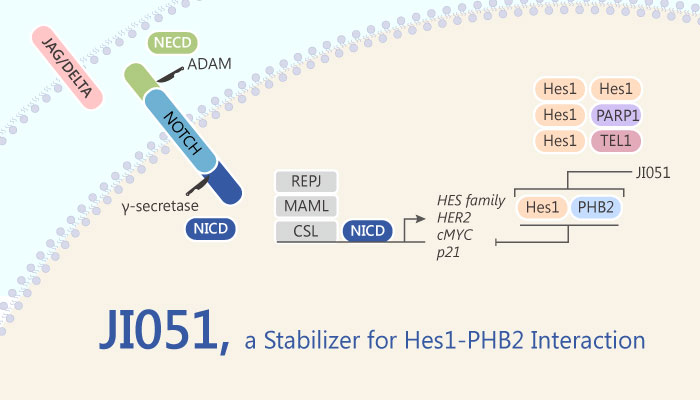Hairy and enhancer of split homolog-1 (HES1) is a part of an extensive family of basic helix-loop-helix (bHLH) proteins. It plays a crucial role in the control and regulation of cell cycle, proliferation, cell differentiation, survival and apoptosis. HES1 is a transcription factor which is regulated by the NOTCH, Hedgehog and Wnt signalling pathways. Aberrant expression of these pathways is a common feature of cancerous cells.
Because γ-secretase has over 100 identified and postulated substrates, such cancer therapies have untoward side effects. Targeting Notch signaling more directly with Hes1 inhibitors may therefore have the advantage of limiting off-target effects. Although small-molecule Hes1 dimer inhibitors and Hes1 modulators with unknown mode of action have previously been reported, Hes1 inhibitors to slow down cancer progression are still highly needed.

Perron et al discovered a small organic molecule JI051 that impairs the ability of Hes1 to repress transcription. JI051 inhibited HEK293 cell proliferation with an EC50 of 0.3 μM. They found that JI051 does not bind TLE1 but instead interacts with prohibitin 2 (PHB2), a cancer-associated protein chaperone. They also found that JI051 stabilizes PHB2’s interaction with Hes1 outside the nucleus, inducing G2/M cell-cycle arrest. Of note, JI051 dose-dependently reduced cell growth of the human pancreatic cancer cell line MIA PaCa-2, and JI130 treatment significantly reduced tumor volume in a murine pancreatic tumor xenograft model. These results suggest a previously unrecognized role for PHB2 in the regulation of Hes1 and may inform potential strategies for managing pancreatic cancer.